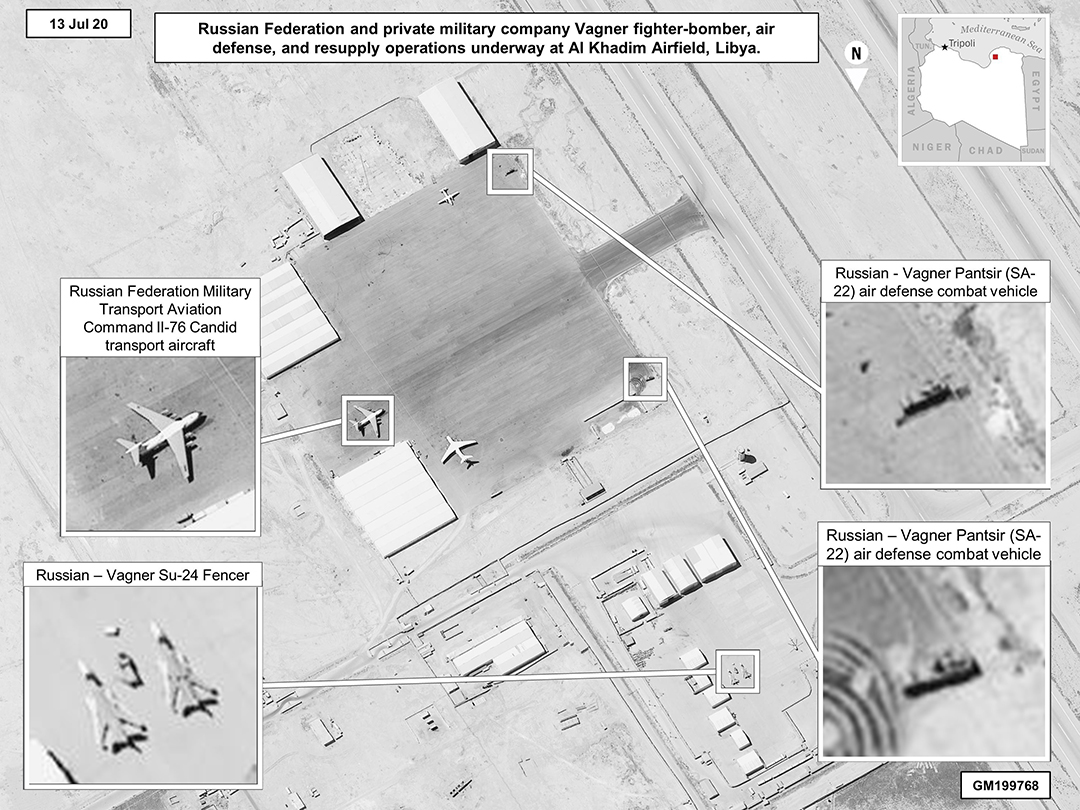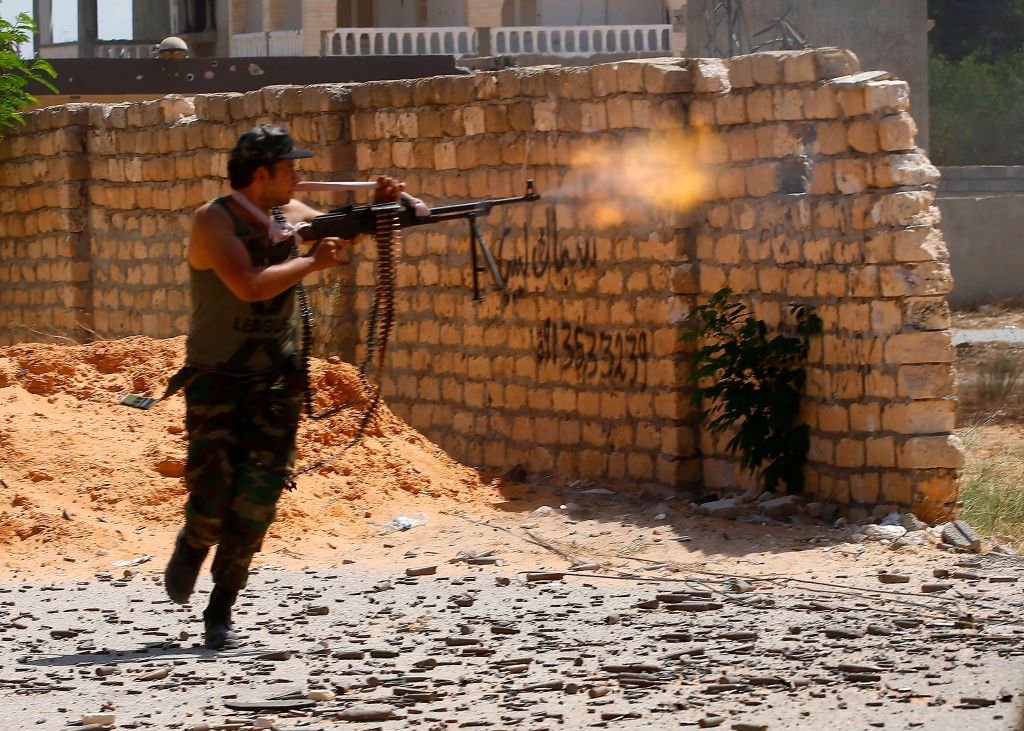ADF STAFF
The continued presence of foreign fighters in Libya threatens to undermine a peace deal brokered by the United Nations in October 2020.
Russian mercenaries who are part of the Wagner Group, which supports Gen. Khalifa Haftar’s Libyan National Army (LNA), still are on the ground, as are Turkish Soldiers backing the internationally recognized Government of National Accord (GNA). Under the Juba Peace Agreement, foreign fighters were supposed to leave the country by late January.
Weeks after the deadline passed, the United Nations issued a report alleging that the United Arab Emirates (UAE) also maintained contact with Sudanese forces backing Haftar. In 2020, the UAE increased weapons deliveries to Haftar, violating a U.N. arms embargo, The Wall Street Journal reported.
Libya is prized for its oil resources and strategic location on the Mediterranean Sea. The Wagner Group is also active in Rwanda, Madagascar, Sudan, the Central African Republic and Mozambique.

“Wagner is deployed by Russia as an extension of its foreign and military ambitions, and authoritarian regimes just so happen to be the clients,” Ahmed Hassan, chief executive officer of Grey Dynamics, an intelligence consulting firm, told Business Insider. “Of course, those type of regimes often try to solve civil unrest by force and Wagner is such a tool.”
The Russian group brazenly signaled its intentions to remain in Libya long term with the construction of a trench that extends about 70 kilometers south from coastal Sirte toward a Haftar-controlled air base in al-Jufra, according to CNN. The trench is marked by a series of sophisticated fortifications that appear to be designed to disrupt land attacks.
Satellite images show more than 30 defensive positions dug along the trench with key positions near the al-Jufra air base and one farther south in Brak, where radar defenses have been installed.
“I don’t think anyone digging a trench today and making these reinforcements is leaving any time soon,” GNA Defense Minister Salaheddin Al-Namroush told CNN.
Muhammad Ammari, a member of Libya’s Presidential Council, agreed.
“Wagner’s forces will not abide by any agreement to withdraw from Libya,” Ammari told The Libya Observer. “The Wagner Group provides the Russian government with the power and means to influence Libyan political, military and economic policy.”
During secret meetings with Libyan officials in June 2020, Wagner representatives demanded that at least 30% of Libya’s oil revenues go to Haftar and announced their intentions to establish a military base in eastern Libya, Ammari told the newspaper.
The Wagner Group is funded by Yevgeny Prigozhin, a close ally of Russian President Vladimir Putin, and has a history of destructive actions in Libya. As the group retreated from the southern outskirts of Tripoli last year, it left behind land mines to maim and kill returning residents.
More than 2,000 people have died during the conflict between the GNA and LNA, and there still are about 20,000 foreign troops and mercenaries operating in Libya, Al-Jazeera reported. Most of the forces are concentrated around Sirte, the al-Jufra air base and an air base in al-Watiya in western Libya.
The Kremlin’s intention to continue to expand its influence in Libya was apparent shortly before the peace deal was signed when LNA fighter jets secretly were upgraded and serviced with parts shipped from Russia in 2019 and 2020, violating the U.N. arms embargo, according to a report on MEED.com.
Turkish troops will remain in Libya as long as a bilateral military agreement between the countries is active and Libya’s government requests it, Ibrahim Kalin, Turkey’s presidential spokesperson, told Reuters in February. Turkish President Recep Tayyip Erdogan said his country would consider withdrawing its troops only if other foreign powers do so first.
“The mercenaries are unlikely to leave Libya so long as the countries which have engaged them have not guaranteed their interests in the new transitional phase,” Khaled al-Montasser, professor of international relations at Tripoli University, told France 24. “Their presence keeps alive the threat of military confrontation at any moment, while the current calm staying in place seems uncertain.”

